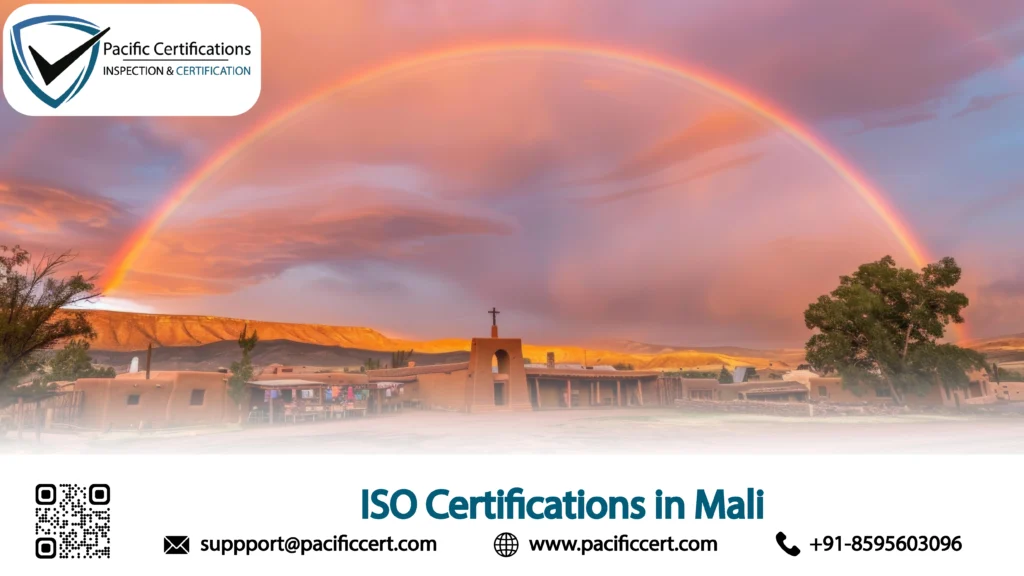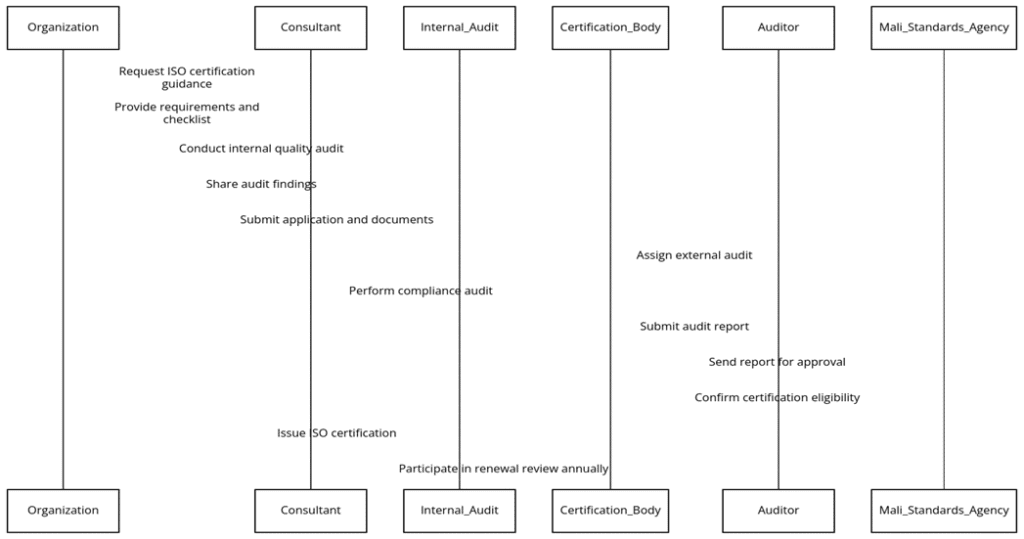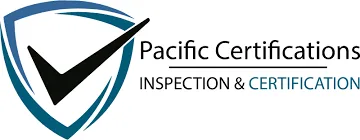
Introduction
Mali’s economy relies on gold mining, cotton and wider agriculture, livestock and meat value chains, food processing, logistics corridors, public works and a growing banking and telecom backbone. Gold mines, cotton ginneries, agricultural businesses and livestock exporters increasingly use ISO certification Mali to show that quality, safety, environment, food safety, environmental management and information security are under control, not assumed.
For mine operators and contractors, ISO certification gold mining Mali and ISO 9001 certification mining companies Mali are becoming baseline signals for project tenders and lender due diligence. In the cotton belt and wider agricultural sector, ISO certification cotton industry Mali, ISO 9001 certification agriculture Mali and ISO 22000 certification food processing Mali help producers and processors protect export routes. Livestock traders and processors are turning to ISO certification livestock Mali, ISO 22000 certification livestock Mali and ISO 9001 certification livestock businesses Mali to reassure buyers about hygiene and cold chain control. ISO 27001 certification Mali is gaining traction with banks, telecoms and digital platforms that handle payments and customer data.
Share your scope and sites in Mali with Pacific Certifications and we will map accreditation coverage, recommended audit days and Stage 1 and Stage 2 windows that match project schedules, harvest cycles and export seasons. We help you get ISO certified Mali across single-site or multi-site operations in mining, agriculture, livestock, logistics and services.
Economic context and industry overview
Mali pairs a large informal rural economy with export-oriented sectors such as gold mining, cotton, livestock and food processing. Agriculture accounts for a major share of GDP and employment, while gold has made the country one of Africa’s leading producers, with associated transport, power and services around mines and corridors.
In 2026 and beyond, investment is expected to concentrate on mine expansion and supporting infrastructure, irrigation and value addition for cotton and crops, livestock chains and cold rooms, logistics on key trade routes and upgrades in banking and telecom networks. Buyers and regulators in these sectors increasingly expect traceable, evidence-based systems for quality management, environmental performance, worker safety, food safety and information security. ISO 9001 certification Mali, ISO 14001 certification Mali, ISO 27001 certification Mali and sector-specific schemes such as ISO 22000 certification food processing Mali fit into that picture.
Why ISO Certification Matters for Mali Businesses?
Large buyers, lenders and public bodies want records and repeatable systems, not just policy statements. ISO certification Mali helps organizations move faster through RFIs, RFQs and vendor onboarding, keep plants, fields and service lines steady and base decisions on data instead of opinion.
Across gold mines, mining contractors, cotton ginneries, food processors, logistics yards and service companies, ISO 9001 certification Mali strengthens process control, documentation and change management. Agriculture cooperatives, aggregators and traders gain predictability in quality, weights, grading and customer service through ISO 9001 certification agriculture Mali and ISO 9001 certification livestock businesses Mali. Environmental responsibilities are clearer when teams adopt ISO 14001 certification Mali and ISO 14001 certification mining industry Mali for structured environmental management at mine sites, ginneries and processing plants.
High-risk tasks such as blasting, haulage and maintenance benefit from ISO 45001 certification mining Mali, which improves occupational safety systems. Food and livestock chains rely on ISO 22000 certification food processing Mali and ISO 22000 certification livestock Mali to run HACCP-based control over slaughter, chilling, processing and distribution. Banks, microfinance groups, payment firms and telecom or IT platforms depend on ISO 27001 certification Mali to secure data and keep systems resilient.
Most Requested ISO Certifications for Mali Industries
| Industry focus | Commonly requested standards | Why they matter |
| Gold mining and contractors | ISO 9001 certification mining companies Mali, ISO 14001 certification mining industry Mali, ISO 45001 certification mining Mali, ISO 50001 | Work quality, environmental control, health and safety, energy use |
| Cotton and wider agricultural sector | ISO certification cotton industry Mali, ISO 9001 certification agriculture Mali, ISO 14001 certification Mali | Product consistency, farm to gin traceability, environmental management |
| Livestock, meat and dairy chains | ISO certification livestock Mali, ISO 22000 certification livestock Mali, ISO 9001 certification livestock businesses Mali | Animal handling, hygiene and cold chain control, buyer confidence |
| Food processing, milling and beverages | ISO 22000 certification food processing Mali, ISO 9001, ISO 14001 | HACCP, product safety, waste and emissions control |
| Banks, microfinance and payments | ISO 27001 certification Mali, ISO 22301, ISO 9001 | Information security, continuity, service quality |
| Telecom, IT and digital platforms | ISO 27001, ISO 22301, ISO 20000 1 | Cyber security, uptime, IT service management |
ISO Certification Process in Mali: Step-by-Step Guide
The ISO certification process in Mali should start from how work runs today in mines, ginneries, farms, plants, yards, branches and offices. The aim is to make your system auditable without asking teams to run two different ways of working. When you look at how to get ISO certified in Mali, the steps usually include:
- List products, services, sites, concession areas, depots and high-risk processes so scope is clear and audit time is realistic.
- Map processes end to end so handoffs, records and responsibilities are visible from suppliers and fields through to customers, buyers and regulators.
- Set policy and measurable objectives linked to buyer needs, legal duties, safety and environment topics, food safety or information security, depending on your sector.
- Build or align procedures, work instructions and simple checklists so staff in mines, fields, plants, markets, depots and offices can follow them day to day.
- Collect and organize records for key controls such as inspection logs, maintenance records, safety talks, temperature logs, training attendance, IT logs and complaints or incident reports.
- Run internal audits that sample high-risk operations and supplier interfaces and record nonconformities with actions and follow up.
- Hold management review with KPIs, audit results, incidents, buyer feedback, resource gaps and decisions with owners and deadlines.
- Schedule Stage 1 for readiness and Stage 2 for implementation verification, align multi-site sampling to risk and geography and agree what can be done on site and what remote.
What are the requirements of ISO certifications in Mali?
Implementation should mirror real work in mines and pits, cotton fields and ginneries, livestock markets and abattoirs, mills and factories, logistics yards, branches and data rooms so records hold up in audits, inspections and buyer reviews. Below are the key requirements:

- Scope aligned to products or services, processes and sites, including multi-site programs across regions such as Bamako, Sikasso or other hubs.
- Controlled documents and records that match practice, with clear version control, access rules and change history that users follow.
- Risk assessment with operational controls for process safety in mining, machinery and vehicle use, pesticide and chemical handling, food safety, cyber risks, privacy, energy use and environmental aspects.
- Standard-specific artifacts such as HACCP plans and CCP logs for ISO 22000 certification food processing Mali, hazard registers and permit to work files for ISO 45001, aspect-impact registers and objectives for ISO 14001 and risk and control files plus Statement of Applicability for ISO 27001 certification Mali.
- Legal and other requirements registers covering mining codes, environmental and water rules, labor law, food and veterinary rules, customs and export conditions, data protection and lender or buyer codes of conduct.
- Competence matrices and training records for supervisors and operators in mining, agriculture and livestock chains, plant staff, drivers, warehouse teams, IT and security staff, sales and customer service teams.
- Internal audit and management review cycles completed on schedule with nonconformities, root cause analysis and verified closures across all locations in scope.
Tip: Whether you build systems with internal staff or an ISO certification consultant Mali, keep procedures simple and linked to the way work already runs.
What are the benefits of ISO certifications in Mali?
ISO certifications in Mali should be used to support tenders, reassure lenders and investors and keep work steady across harvests, project cycles and market swings. Below are the key benefits:
- Faster pre-qualification in buyer portals and public procurement for gold mines, contractors, cotton and agricultural businesses, livestock chains, processors and service providers.
- Fewer incidents, defects and stoppages in pits, plants, lines, markets and on transport routes, which cuts rework, downtime and claims.
- Clear roles and training paths for operators, drivers, mechanics, field agents, quality and HSE staff and managers across different regions and shifts.
- Traceable data for investigations, recalls, warranty and cargo claims, insurance discussions, ESG-style summaries and due diligence by investors and partners.
- Stronger supplier and contractor control through audits, KPIs and corrective actions across transport, maintenance, cleaning, security, subcontracted work and IT support.
- Measured gains in yield, waste, emissions, energy use and uptime in mines, plants, depots and logistics hubs.
- Clearer signals of reliability when international buyers compare ISO status across gold mining companies, cotton producers, agricultural businesses and livestock exporters.
Recent trends and market demand in Mali suggest that by 2026 and 2027 more mining, cotton, agriculture and livestock groups will formalize ISO 9001 certification Mali and sector specific schemes to protect export routes and financing. ISO certification gold mining Mali and ISO certification agricultural sector Mali are appearing more often in buyer requirements, while banks, payment firms and telecoms show growing interest in ISO 27001 certification Mali for information security.
Common Challenges in ISO Certification Implementation Mali
Local conditions can make ISO work demanding if teams are not supported. Common challenges include:
- Budgeting time and funds for certification and system upkeep while projects, harvests, export deadlines and security or weather events compete for attention.
- Treating ISO as paperwork in some teams, which slows adoption and leaves gaps between procedures and real operations.
- Shortage of trained internal auditors and process owners who can link clauses to mine safety, farm or livestock practices, food safety or data security risks.
- Gaps in document control, internal audits, corrective action discipline and record keeping across multi-site and multi-vendor networks in regions with limited connectivity.
- Complex supply chains and joint venture structures that make it harder to gather evidence and keep controls consistent from tier 1 to tier 3 suppliers.
What is the cost of certification in Mali?
ISO certification cost in Mali is confirmed after scoping and reflects headcount and risk, the number and spread of sites, the standards chosen, whether the system is single standard or integrated (for example ISO 9001 + ISO 14001 + ISO 45001), sampling depth for pits, plants, depots, markets, branches or data centers and the mix between on site and remote audit work.
For many small to medium enterprises in Mali, such as local mining contractors, cotton and agricultural businesses, livestock traders and processors or logistics firms, audit time depends more on employee numbers, process complexity and single site versus multi-site scope than on revenue alone.
Your proposal from Pacific Certifications will itemize Stage 1, Stage 2 and surveillance days, explain on site versus remote activities and highlight any multi-site efficiencies so leadership and finance teams can plan with confidence.
For a personalized ISO certification cost in Mali estimate for ISO 9001 certification Mali, ISO 14001 certification Mali, ISO 45001, ISO 22000 or ISO 27001, contact support@pacificcert.com and request a free cost estimate for your operations.
How Long Does ISO Certification Take in Mali?
Timelines depend on document and record readiness, the speed of closing Stage 1 findings, single versus multi site scope and whether the program is single standard or integrated. Planning around mine shutdowns, farming and cotton seasons, livestock movements, export windows, fiscal year end and key customer audits also shapes the schedule.
A prepared single site such as one mine site, ginnery, plant, depot, market hub, branch or data room can often move from application to decision within one audit cycle. Multi-site or integrated programs involving several locations or combined standards need more sampling and planning time, especially where different regions and partners are involved.
Important standards often requested by buyers in Mali
| Standard | Typical drivers in Mali |
| ISO 9001 | Supplier approval for mining companies, cotton and agricultural businesses, livestock chains, food processing, logistics and services |
| ISO 14001 and ISO 45001 | Environmental and safety control for mines, plants, yards, depots and project sites |
| ISO 22000 | HACCP and traceability for food processing, grain, livestock products and exports |
| ISO 27001 and ISO 22301 | Security and continuity for banks, microfinance, payments, telecom and IT platforms |
| ISO 50001 | Energy use control for high consumption sites such as mines, mills and large plants |
How Pacific Certifications can help?
Pacific Certifications audits and certifies ISO management systems for gold mining companies and contractors, cotton producers and ginneries, agriculture and food processing firms, livestock and meat businesses, logistics and depots, banks and microfinance, telecom and IT service providers across Mali. We provide third-party ISO certification services under ABIS accreditation with transparent pricing and auditors used to mine sites, rural operations, plants, markets and offices as well as buyer and lender questions.
Get your free ISO certification quote and fee estimate for ISO 9001 certification Mali, ISO 14001 certification Mali, ISO 45001, ISO 22000, ISO 27001 certification Mali or integrated ISO certification packages. We will help you map Stage 1 and Stage 2 timelines and evidence needs for your organization in Bamako, Sikasso or other regions. Contact us at support@pacificcert.com for a free ISO certification quote for Mali.
ISO Training Programs in Mali: Lead Auditor & Implementer Courses
Pacific Certifications provides accredited training programs in Mali for ISO 9001, ISO 14001, ISO 45001, ISO 22000, ISO 27001, ISO 22301 and ISO 20000-1.
- Lead auditor training: for professionals who plan and conduct audits in mining, agriculture, livestock, food processing, logistics, finance and IT.
- Lead implementer training: for personnel who build or improve systems in gold mining companies, cotton and agricultural businesses, livestock chains, plants and service organizations.
These programs can run online or on site, depending on client needs, and support teams that prefer to rely on internal capability instead of external consultants.
FAQs
Which ISO certifications are most common in Mali?
ISO 9001 certification Mali, ISO 14001, ISO 45001 and ISO 22000 are common, with ISO 27001 growing in finance and telecom.
Which sectors in Mali need ISO certification most?
Gold mining, cotton and agriculture, livestock and food processing, logistics, banks and telecom gain the most from ISO certification in Mali.
How to get ISO certified in Mali?
Define scope, address key risks, train staff, run internal audits and then complete Stage 1 and Stage 2 audits with an accredited certification body.
Why is ISO certification gold mining Mali important?
It gives buyers and lenders assurance on safety, environment and quality control at mines and associated operations.
How does ISO certification cotton industry Mali help exporters?
It supports consistent quality, traceability and documentation that foreign buyers look for in cotton contracts.
Do livestock businesses in Mali benefit from ISO 22000?
Yes, ISO 22000 certification livestock Mali supports hygiene, HACCP and cold chain control for meat and livestock products.
What drives ISO certification cost Mali for SMEs?
Main factors are employee numbers, risk level, number of sites and whether one or several standards are included.
Can ISO audits in Mali be partly remote?
Yes, document reviews and many interviews can be done remotely, with focused on-site checks for higher risk activities.
Do organizations in Bamako and other cities need local consultants?
Some use an ISO certification consultant Mali, but many succeed using internal teams supported by training and clear certification body guidance.
How do we maintain our ISO certificate once issued?
Keep running internal audits, close nonconformities, update risks and legal registers, hold management reviews and complete annual surveillance and three-year recertification audits.
Contact Us
If you need support with ISO certification in Mali, contact us at support@pacificcert.com.
Read More at: Blogs by Pacific Certifications






